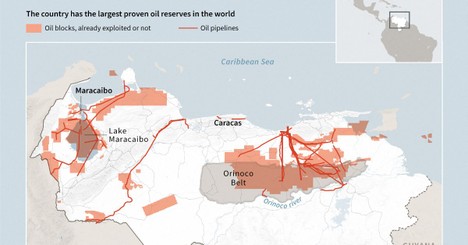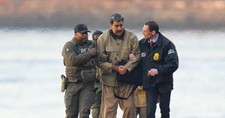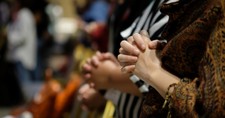
Trending Articles
Recent News
What Christians Should Know About Venezuela’s Oil Industry and U.S. Involvement Law Enforcement Involved in ICE-Related Shooting in Minneapolis Tim Allen Delves into Paul's Teachings on Law and Sin on Bill Maher's Podcast Philip Yancey Confesses to 8-Year Affair, Steps Away from Public Life Dave Ramsey Warns: DraftKings and FanDuel Are ‘Destroying a Generation of Young Men’ Reimagining the American Revolution? Alabama’s Germie Bernard Goes Viral for Praising Jesus after Crushing Loss Outgoing Kentucky Megachurch Pastor Launches Ministry to Feed Deer Jerky to Children What Should Christians Think of ‘Stranger Things’? Sean McDowell Weighs In Liberating Venezuela 7 NFL Playoff Quarterbacks Who Are Bold About Their Love for Jesus How 5 Evangelical Leaders Reacted to U.S. Action in Venezuela
Trending Articles
Recent News
What Christians Should Know About Venezuela’s Oil Industry and U.S. Involvement Law Enforcement Involved in ICE-Related Shooting in Minneapolis Tim Allen Delves into Paul's Teachings on Law and Sin on Bill Maher's Podcast Philip Yancey Confesses to 8-Year Affair, Steps Away from Public Life Dave Ramsey Warns: DraftKings and FanDuel Are ‘Destroying a Generation of Young Men’ Reimagining the American Revolution? Alabama’s Germie Bernard Goes Viral for Praising Jesus after Crushing Loss Outgoing Kentucky Megachurch Pastor Launches Ministry to Feed Deer Jerky to Children
Positive Stories
Celebrity
Video
Opinion
Church
Entertainment
Sports
Movies
Politics
Israel
Christian News Headlines - Breaking and Trending Religion News
Crosswalk Headlines - Christian news brought to you by a group of Christian writers and editors who are dedicated to creating a well-rounded look at what’s happening across the globe from a Christian worldview. Our vision is to inform and inspire productive discussion about the current events and online trends that shape our lives, our churches and our world.Crosswalk Headlines includes blog posts about current events and Christian media, breaking news, feature articles, and guest commentaries, many written by respected Christian thinkers.































































